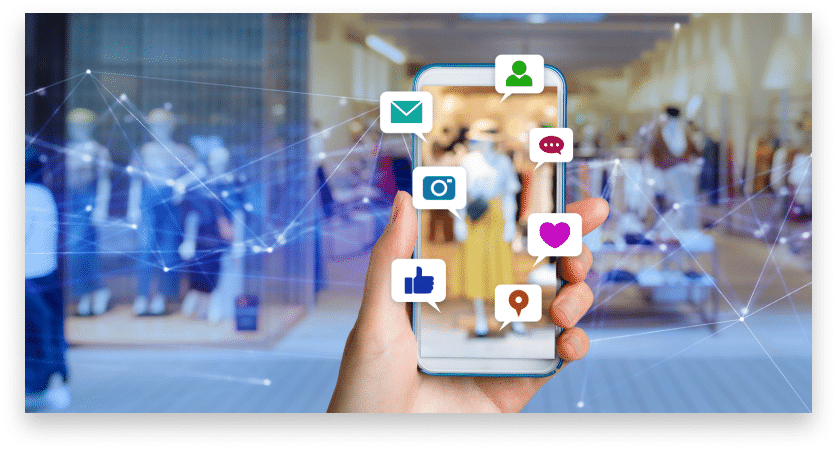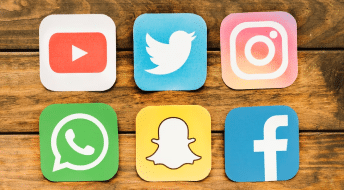Social Media & Eating Disorders
People who already struggle with body image issues are at an increased risk for developing eating disorders, and social media often amplifies that risk. If you suffer from anorexia, bulimia, binging, or exercise disorders brought on by social media exposure to harmful content promoting a certain body type or lifestyle, contact the California personal injury lawyers at Cutter Law to learn more about your options today.
People with poor body image and self-esteem risk developing eating disorders such as anorexia nervosa, bulimia, binging, and overexercising. Young women are particularly vulnerable, but boys and men are also susceptible. Experts blame social media content portraying airbrushed and edited images for creating pressure on young people to live up to a particular standard of beauty.
If you or a family member suffers from disordered eating or body dysmorphia due to exposure to TikTok, Instagram, Tumblr, Snapchat, Facebook, Twitter, YouTube, or other social media platforms, contact a California personal injury attorney at Cutter Law. We can listen to your story and help you understand how to move forward with holding these companies accountable.
Quick Links
- Is there a link between social media and eating disorders?
- Studies
- What are the signs of an eating disorder in teenagers?
- How has social media caused eating disorders?
- What is the role of social media companies in promoting eating disorders?
- What can social media companies do to protect consumers?
- Where can I turn for help with an eating disorder?
- FAQ
Is there a link between social media and eating disorders?
It’s been well-documented that social media exposure can cause depression, anxiety, and suicidal ideations. But what about other mental illnesses?
Following the pandemic, medical professionals noticed that more girls than ever reported dieting to lose weight or seemed overly concerned about their shape or size. Some experts hypothesized that the increased time young people spend online contributed to this uptick in body image issues. Daily exposure to photos and videos on social media increases the risk of developing an eating disorder as we compare our bodies to those we see online.

Studies
- One study out of Australia and New Zealand found that more than 50 percent of girls ages 13 and 14 who had a social media account reported purposefully changing their eating habits, skipping meals, and overexercising more often than those without social media.
- Instagram users who follow health-food accounts are more likely than those who don’t to exhibit symptoms of anorexia.
What are the signs of an eating disorder in teenagers?
Eating disorders have the highest morbidity rate of all mental illnesses. The mortality rate for women 15 to 24 suffering from anorexia is 12 times higher than all other causes of death for females in that age demographic. Some signs someone may have an eating disorder include:
- Skipping meals
- Adopting a restrictive diet
- Having an excessive focus on weight loss and health
- Eating meals separately from the family or in secret
- Withdrawing from activities once enjoyed
- Exercising excessively
- Eating a large amount of sweet or high-fat food without gaining weight
- Experiencing a loss of tooth enamel
- Leaving meals frequently to use the bathroom
How has social media caused eating disorders?
Social media apps are powered by computer algorithms designed to market ads to a user. When you enter a term into an app’s search box, the algorithm notes that information and sends more similar content to your feed. For example, a young person searching for information on losing weight could soon see their feed filled with ads for weight loss products, exercise programs, and dietary supplements. They may also be directed to join online communities that celebrate disordered eating as a lifestyle.
A user who is already vulnerable may be further encouraged to resort to unhealthy weight loss behaviors such as binging or purging to lose weight. And while girls and women make up the largest percentage of people with eating disorders, boys and men are not immune. Sales of muscle-building dietary supplements advertised on social media apps are on the rise. Almost one-third of boys say they want to gain weight or build muscle fast.
Cyberbullying may also contribute to disordered eating when other social media users target a teenager’s appearance or size online.
What is the role of social media companies in promoting eating disorders?
Social media platforms are designed to generate money through advertising and sponsored content. Parent companies could alter their product design to make social media apps safer for young users, but they consistently put profits over safety:

- Internal documents leaked by whistleblower Frances Haugen in 2021 indicated that executives at Meta, the parent company of Instagram, knew the photo-sharing app was causing harm to teenage girls by only sharing “picture-perfect” photos and moments.
- “Thinspiration” blogs, secret online communities that promote eating disorders, are available to Tumblr users of all ages. Community members discuss how to stave off hunger and shame one another into unhealthy weight loss behaviors.
- Instagram algorithms directed teenage girls searching for weight loss information to ads promoting dieting and content about calorie counting and exercise plans.
If you or your child developed an eating or exercise disorder due to social media use, you might be able to hold these companies responsible for design defects tied to product liability.
What can social media companies do to protect consumers?
In response to public criticism, Meta created a nudge function that directs users who have been watching weight loss videos for too long away from the content to other topics. Other social media platforms could follow suit, and some families are fighting to hold them accountable by filing social media lawsuits.
Where can I turn for help with an eating disorder?
If you or a family member is struggling with an eating disorder, reach out to the National Eating Disorders Association for resources. A California personal injury attorney can help you take legal action as well. You may be entitled to collect damages for the harm you or your loved one has suffered due to toxic social media exposure.
Call the team at Cutter Law for a free consultation. We have offices in Sacramento, Oakland, and Santa Rosa. We don’t charge you a dime until we win your case.

FAQ
Does social media play a role in anorexia?
There is evidence that social media’s effect on body image and eating disorders is real. People who are already at risk for developing anorexia may be further placed in harm’s way by exposure to toxic social media content.
How are social media platforms promoting unhealthy body image?
Social media apps create unrealistic beauty standards by portraying videos and photos that have been heavily edited and filtered. This can give users the impression that they can’t keep up with appearances.
How does social media affect people's eating habits?
Social media users may be exposed to online communities that encourage unhealthy weight loss behavior such as extreme fasting, binging and purging, overexercising, or bulking and cutting to build muscle.
How does social media cause body dysmorphia?
Taking and posting selfies on social media can amplify the effects of body dysmorphia in someone vulnerable to the condition. At the extreme end, a person may seek out plastic surgery to change their appearance to look like a filtered image they’ve seen on social media.
How does social media affect mental health and body image?
Scientists tied higher rates of body dissatisfaction to social media use. This is especially dangerous for children and young people still developing a sense of self. Poor self-image and self-esteem can lead to depression, social anxiety, eating disorders, self-harm, and suicidal thoughts.
Schedule A Free Case Review
"*" indicates required fields
Our Office Locations
Sacramento Office
401 Watt Avenue Suite 100
Sacramento, CA 95864
Phone: 916-290-9400
Oakland Office
Cutter Law P.C.
1901 Harrison Street Suite 910
Oakland, CA 94612


